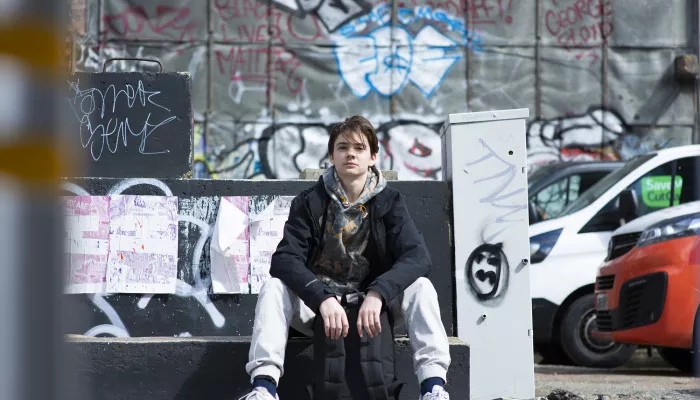
Youth homelessness and local authority gatekeeping
Centrepoint’s 2022/23 Youth Homelessness Databank has found that more than a third of the young people who approached their local authority in England in 2022/23 were not assessed for eligibility.

We carry out research on the issues affecting homeless young people and develop the policy solutions needed to bring about change.

Centrepoint’s 2022/23 Youth Homelessness Databank has found that more than a third of the young people who approached their local authority in England in 2022/23 were not assessed for eligibility.

In supported housing, accommodation is provided alongside support, supervision or care to help people live as independently as possible in the community. Residents of supported housing include, for example, older people, people with disabilities, people fleeing domestic abuse, people with experience of the criminal justice system, people recovering from alcohol or drug addiction.

Making work pay for vulnerable young people. The recent focus on the cost of living crisis is nothing new for young people with experiences of homelessness. While inflationary pressures have undoubtedly increased costs and made it harder to maintain living standards, existing issues inherent within the nation’s social security regime and housing market have meant that vulnerable young people have long been at a disadvantage.

The formal housing eligibility and entitlement frameworks are not considered under the SWEP. Any person rough sleeping and in dire need of a safe and warm place, who cannot afford to live indoors (except cars, sheds, barns, garages, etc.) is protected under the SWEP.

Despite the support from the government with the Energy Price Guarantee and Cost of Living Support schemes, the increase in the cost of living has dramatically worsened the conditions of the most vulnerable households, with inflation often named ‘the most regressive tax of all’.

A policy briefing about the new exemption from the Shared Accommodation Rate for care leavers, which means that groups of young people who are in receipt of either Housing Benefit or the housing element of Universal Credit will be eligible to claim the self-contained, one-bed rate of the Local Housing Allowance within Universal Credit, instead of the Shared Accommodation Rate.

Coronavirus has been an unprecedented challenge for charities working to support homeless people. Since MHCLG issued the ‘Everybody In’ directive at the end of March, approximately 5,400 rough sleepers have been placed in emergency accommodation.1 The instruction was clear - ‘focus on people who are, or are at risk of, sleeping rough, and those who are in accommodation where it is difficult to self-isolate, such as shelters and assessment Centres.

Universal Credit should provide a safety net for everyone. Yet the UC system unfairly assumes that all under-25s can rely on family for financial support. This is not the case for many young people living independently who cannot live safely at home, particularly those who have been in care or experienced homelessness.

The COVID-19 pandemic poses unprecedented risks to all, but those experiencing or at risk of homelessness are especially vulnerable. Charities like Centrepoint, Depaul UK, St Mungo’s and Homeless Link which provide accommodation for people who are homeless are determined to do everything it takes to maintain the high level of service we deliver all year round, yet the sector needs vital support from the government to do this.

Under current welfare rules, thousands of vulnerable young people are at risk of homelessness, as they cannot afford to cover the cost of renting in the private rental sector. The amount of financial support someone in receipt of benefits can claim for their rent is calculated according to the Local Housing Allowance (LHA). The LHA is based on average rents in an area, and includes different rates depending on the size of the property that the claimant is thought to need. Most people under the age of 35 are only eligible for the lowest rate of LHA, the Shared Accommodation Rate. This is based on the cost of renting a room in a shared house.

Centrepoint is calling on London Mayoral candidates to commit to taking urgent action on youth homelessness.

Young people, aged 18 to 21, who claim Universal Credit will be required, from April 2017, to participate in an intensive regime of support from day one of their benefit claim. After six months they should be offered an apprenticeship or traineeship, gain work-based skills, or undertake a work placement to give them the skills they need to move into sustainable employment.